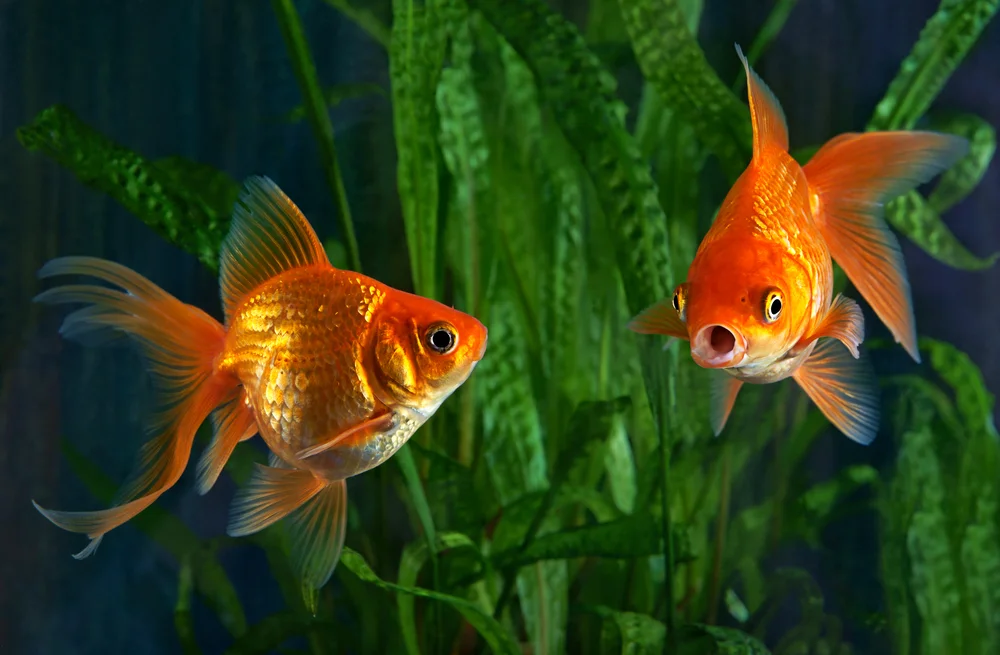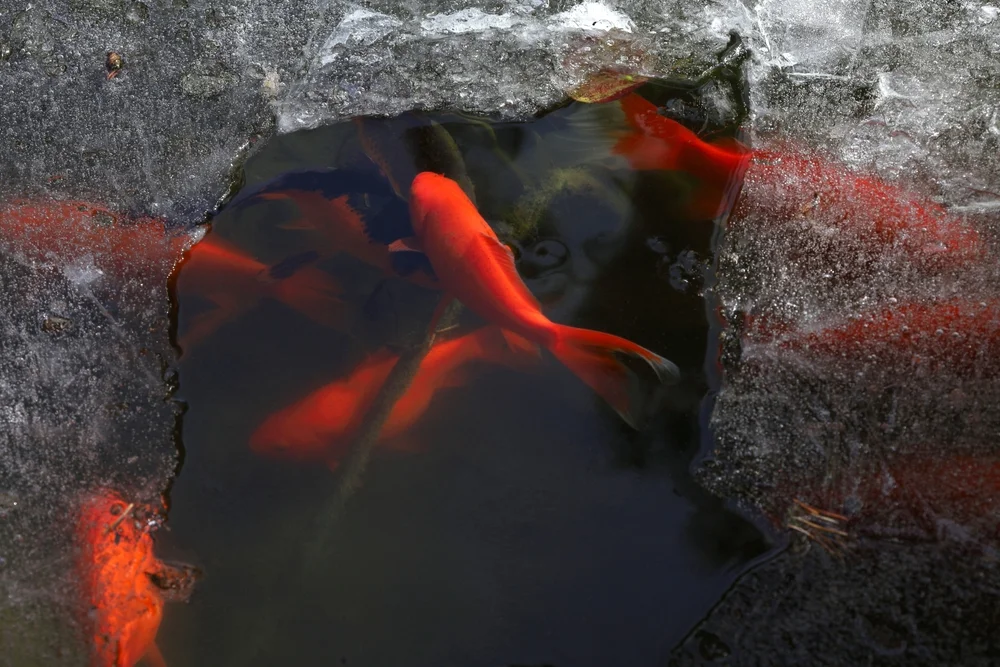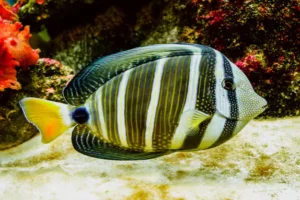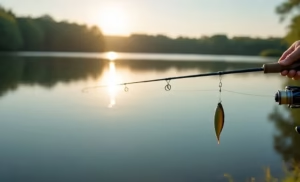Have you ever possessed a pet goldfish, or have you been amazed by the keen concept of fish that night fish insert themselves?? You could have thought about questions: can fish put up the shutters of their eyeballs?? A peculiarly fascinated mind gives a human face to this specimen. This helps to relieve your anxieties and gives you the comfort of pure silence giving this lavishness ultimately won`t hurt!!! Sleep is very important for mental processes and health. Sleep is important for all organisms. normally humans sleep around 6-8 hours, but fish do not certainly need many hours to sleep. Fish possibly require staying in a state of (sleep-like-rest). This state is managed by circadian rhythm (recurring 24-hours a day), it doesn’t identify the imaginary state where aesthetic details are ignore.
Table of Contents
ToggleA Sleep-like state of rest
Recent research proposed that goldfish must surely regulate their routine shift along the sleep or sleepy mode. They may do it for some proportions like land mammals, but they enter in a feeling of amnesia, but they don’t materialize their wishes. So, at last, sleep is very important to recognize their identity

It is well-being to know that sleep is important for all fishes like aquarium fish, and goldfish for their growth, nourishment, and spawning period. Recent scientists suggested that every organism that has a complex neuro system needs to sleep a couple of hours now and then. A night of good sleep can affect the neural combination, functions, heart rate, pulse rate, muscle usage, etc during their nourishment period. Sometimes, fish can go to rapid-eye-movement sleep. This phase can decrease the brain or neural activity. A hormone (MELATONIN), which can produce pineal organs, is regulating their rhythmic sleep to rest.
Clear Signs Your fish is ‘sleeping’
This fish resting phase can be very confusing with evidence of stress or anxiety. it may remain near the bottom of things in the trunk or usually make short or calm movements. Its eyes persist wide open throughout its whole life of rest, but it doesn’t have eyelids. A healthy goldfish may have slightly angled downward. It may have an upright structure. Like many mammals, it will not lie on its back. It may exhibit clear symptoms of anxiety like nonacceptance of food, noticeable spots and reddish spots on its paddle, and incapability to move after examination. Sick goldfish may move unsymmetrically or dominate their structure.
How can I Help my Goldfish Rest?
Like us, goldfish also like peaceful or quiet times at night when they used to sleep. Time of light and darkness help them to regulate their sleeping hours or circadian rhythm. Even if the brightness is light, they insert their active phase but when once all the lights are off, goldfish automatically “sleep” at night. Assure that lights are switched on 12-14 hours per day to preserve a healthy “sleep”. Goldfish will explore for darker or dimmer spots for rest. In specially aquariums, lights will be left on for prolonged durations through the night is very fascinating for sure, but this is not recommendable. In bright tanks or aquariums, goldfish will search under the shaded area or cave. Hypothetically, goldfish should be uncovered for more than 6 hours per day.
Reducing noise and physical distraction will keep them away from attacks and shock. Loud sounds and bright lights will frighten your goldfish like abruptly waking up a soul at night will make your fish aware or wide awake. Throwing things into the tank or aquarium will cause quivering in the water or cause your fish to be alert.
Rest Deprivation in Fish
Reducing or minimizing the sleep of the goldfish can have negative effects on their intellectual qualities. It will also affect them from a lot of infections or illness and their reproduction system. They need to persist in waking up generally when they feel unsafe in a pond, tank, or aquarium or frightened by the wild species in a tank. This also happens when they are not supplying recommendable conditions or things they deserve for their healthy “sleep”. To reduce the aspects of sleep insomnia, researchers have concluded that fish are encountering the phase of “sleep awake”. It means that they lost their sleep hours and entered the phase of sleep insomnia. This state can damage the fish concentration span (the length of time for which a person can concentrate on a particular activity), exterior incentive, or motion skills. Reprise and long-term disruption can lead to illness and sickness. We can imagine that all these effects can extend to ponds and tanks. Unfortunately, sleep deprivation can open as a root of sleep illness in humans and other origins which can lead to very serious illness to organisms.
Do Goldfish “Sleep” or Hibernate in Winter?
In winter, goldfish and aquatic or artistic species can enter a phase of “lifelessness”. This is sometimes called “slumber”. This is not the same as mammalian rest. If this state is long-term this is called a “torpor”.it can preserve its strength for specifically low temperatures. Their body power can be automatically slowed down by the low temperature of 50 F (10 C).
In lethargy, goldfish can settle down in the bottom zone or the bottom region of the pond. They can be fast asleep or lifeless, only moving when caught up with food or hiding from predators. They transfer their activities and come out in a short state of lethargy. In the spring season, they restrain their stabilised “sleep” once the temperature is stable. Their artistic fins can create mesmerising views in the shadow light. In the inactivity of the 150th night, goldfish embraced the satisfying night, their scales with magical resemblance surrounding them. The aquatic ballet commences as the goldfish, with their scales agleam, navigate their aquatic realms with unhurried grace. During this period, their heart rates reduce, and oxygen consumption diminishes, allowing these fascinating beings to regulate the realms of inactivity.




